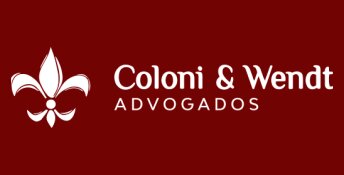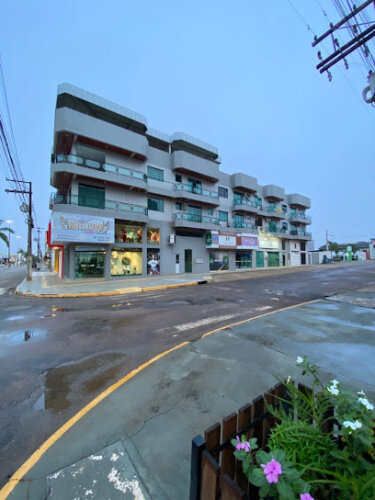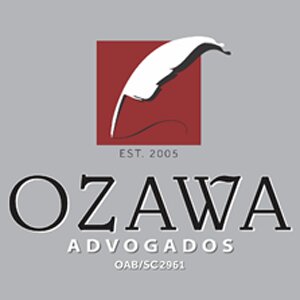Best Native People Lawyers in Brazil
Share your needs with us, get contacted by law firms.
Free. Takes 2 min.
Or refine your search by selecting a city:
List of the best lawyers in Brazil
About Native People Law in Brazil
Native people, or Indigenous peoples, in Brazil have a rich cultural heritage and have resided in the region long before the arrival of Europeans. They comprise many different ethnic groups, each with its own languages, traditions, and forms of social organization. The Brazilian Constitution recognizes Indigenous peoples’ rights to their social organization, customs, languages, beliefs, and traditions, as well as their exclusive rights to traditionally occupied lands.
Why You May Need a Lawyer
There are several circumstances where Indigenous individuals or communities in Brazil may need legal assistance. Common situations include:
- Land rights disputes, ensuring that Indigenous territories are protected from encroachments or exploitation by external parties.
- Consulting on natural resource extraction projects that may impact their lands.
- Defending against environmental damage and ensuring proper legal avenues are followed for reclamation.
- Navigating Brazilian legal structures, especially when advocating for Indigenous interests or cultural preservation.
- Applying for government programs and benefits designed for Indigenous communities.
Local Laws Overview
The legal framework surrounding Indigenous peoples in Brazil primarily revolves around the Federal Constitution of 1988 and several other laws and conventions:
- Brazilian Constitution (1988): Articles 231 and 232 specifically recognize Indigenous people's rights to their social structures, customs, languages, and traditional lands.
- Statute of the Indian (Law No. 6.001/1973): This law aims to protect Indigenous rights but is considered outdated by many and in need of reform.
- Demarcation of Indigenous Lands: A process through which the Brazilian government officially recognizes Indigenous territories to protect them from encroachment.
- International Treaties: Brazil is a signatory to several international agreements, such as the International Labour Organization (ILO) Convention 169, focused on Indigenous and Tribal Peoples in Independent Countries.
Frequently Asked Questions
What rights do Indigenous people in Brazil have regarding land?
Indigenous people in Brazil have the right to permanent possession of their traditional lands and the exclusive use of the natural resources therein.
How are Indigenous lands identified and protected?
The process of demarcation identifies and officially recognizes Indigenous lands, involving several stages including identification, declaration, and ultimately, approval and registration.
What are the main threats to Indigenous lands in Brazil?
Common threats include illegal mining, logging, agriculture, and infrastructure projects which may cause environmental damage and encroach on Indigenous territories.
Are Indigenous people entitled to any special government programs?
Yes, Indigenous communities have access to specific health, educational, and social welfare programs designed to protect and promote their rights and well-being.
How can disputes over land and resource use be addressed legally?
Disputes can be addressed through legal action in Brazilian courts, often requiring specialized lawyers who understand Indigenous law and rights.
What role do NGOs play in supporting Indigenous rights in Brazil?
Many NGOs provide legal support, advocacy, and resources to help Indigenous communities protect their rights and lands.
Can Indigenous people in Brazil maintain their traditional governance structures?
Yes, the Brazilian Constitution recognizes and supports the right of Indigenous peoples to adhere to their traditional social structures and governance systems.
Is prior consultation required before any developments on Indigenous land?
Yes, Brazilian law and international treaties to which Brazil is a signatory require prior, free, and informed consent before any development projects can proceed on Indigenous land.
How are Indigenous cultural practices protected under Brazilian law?
The Constitution guarantees the protection of Indigenous cultural heritage, including languages, rituals, and social structures, as part of Brazil’s cultural diversity.
What is the role of FUNAI regarding Indigenous peoples?
FUNAI (National Indian Foundation) is the Brazilian governmental body responsible for supporting and protecting the rights of Indigenous peoples, including land demarcation and providing social services.
Additional Resources
Several organizations and governmental bodies can provide valuable resources for those seeking legal advice concerning Indigenous issues:
- FUNAI: The main governmental body for assisting Indigenous communities.
- Ministry of Justice and Public Security (MJSP): Oversees policies related to Indigenous peoples.
- Instituto Socioambiental (ISA): NGO focused on environmental and social issues, including Indigenous rights.
- Comissão Pró-Índio de São Paulo: A non-governmental organization dedicated to promoting the rights of Indigenous peoples.
- International Labour Organization (ILO) Convention 169: A reference for international standards regarding Indigenous peoples' rights.
Next Steps
If you require legal assistance in matters related to Indigenous people in Brazil, consider the following steps:
- Identify the specific legal issues you are facing and gather relevant documentation, such as land titles or certificates of heritage.
- Reach out to legal professionals or organizations specializing in Indigenous law through the resources listed above.
- Consult with FUNAI or other governmental bodies for information on your rights and possible protections under current laws and treaties.
- Connect with other Indigenous communities or associations who may have faced similar legal challenges.
- Stay informed about any changes in legislation or policy that could affect your legal situation.
Lawzana helps you find the best lawyers and law firms in Brazil through a curated and pre-screened list of qualified legal professionals. Our platform offers rankings and detailed profiles of attorneys and law firms, allowing you to compare based on practice areas, including Native People, experience, and client feedback.
Each profile includes a description of the firm's areas of practice, client reviews, team members and partners, year of establishment, spoken languages, office locations, contact information, social media presence, and any published articles or resources. Most firms on our platform speak English and are experienced in both local and international legal matters.
Get a quote from top-rated law firms in Brazil — quickly, securely, and without unnecessary hassle.
Disclaimer:
The information provided on this page is for general informational purposes only and does not constitute legal advice. While we strive to ensure the accuracy and relevance of the content, legal information may change over time, and interpretations of the law can vary. You should always consult with a qualified legal professional for advice specific to your situation.
We disclaim all liability for actions taken or not taken based on the content of this page. If you believe any information is incorrect or outdated, please contact us, and we will review and update it where appropriate.
Browse native people law firms by city in Brazil
Refine your search by selecting a city.














